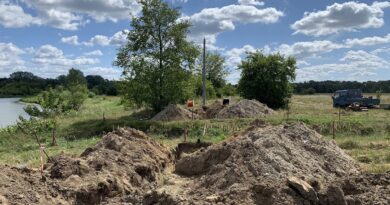Five ways countries can work together against firearms trafficking
Firearms trafficking is one of the most dangerous forms of organized crime. It fuels conflicts, fosters violence across borders and enriches and strengthens criminal networks.
Its transnational nature – with multiple criminal groups operating in different regions – makes it difficult for countries to combat it alone. A weapon may be manufactured in one country and transported to a second country by a citizen of a third on a vessel registered in a fourth.
To make matters worse, firearms trafficking often overlaps with other offences such as corruption, money laundering or obstruction of justice. Legitimate businesses, including manufacturers, dealers, brokers, and security firms, may also unknowingly or knowingly contribute to this crime.
Addressing the illicit manufacturing and trafficking of firearms and related items requires strong law enforcement and judicial cooperation.
International law, including the UN Convention against Transnational Organized Crime, provides powerful criminal justice tools to help investigate, prosecute and convict gun traffickers. Used alongside the UN Firearms Protocol, these instruments support countries in disrupting the circulation of illegal weapons.
Here are five concrete and practical ways in which countries can cooperate to fight against the illicit arms trade:
- Special investigative techniques: from informants to controlled deliveries and undercover operations
Standard investigation methods are not always sufficient for dealing with firearms trafficking. This is where special investigative techniques come in.
These are sophisticated methods that allow investigators to gather crucial evidence without alerting the suspects. Here are some examples.
Electronic surveillance involves monitoring suspects’ communications, tapping phones, tracking GPS and using spyware. Given its intrusive nature and potential violation of fundamental rights, such as privacy, electronic surveillance requires strict judicial oversight.
Informants are members of criminal groups who offer insights to law enforcement into the workings of that group, including its structure, individual members and financial resources. The Convention against Transnational Organized Crime supports collaboration with informants and allows for mitigating their punishment or granting them immunity and protection in exchange for information.
Undercover operations take place when officers infiltrate firearms trafficking rings using false identities to gather intelligence and evidence.
In certain cases, officers may have to commit minor criminal acts to gain trust and maintain cover – a practice accepted in some countries but not permitted in others.
New forms of undercover operations include online investigations and cyber-patrolling on the dark web, with officers posing as buyers or sellers to expose gangs.
Controlled deliveries involve allowing a suspicious shipment to proceed under the supervision of officers to track its path and identify key actors along the route.
A controlled delivery is a highly delicate operation. Poor planning or an unexpected event can compromise the whole mission and lead to the loss of illegal weapons.
Therefore, investigators are encouraged to conduct them together with other tools, such as GPS tracking or physical surveillance, while maintaining close communication across borders.
- Extradition: chasing criminals across borders
Firearms traffickers may try to escape justice by fleeing abroad. Extradition allows one country to hand over an accused or convicted individual to another for trial or punishment.
However, extradition can be complicated. It depends on whether the same act is considered an offence in both countries. It also depends on whether an extradition agreement exists between them.
The UN Convention can serve as a legal basis for two countries to extradite gun traffickers even with no formal extradition treaty in place.
- Mutual legal assistance: exchanging information and evidence
When investigators in one country are unable to gather evidence or question witnesses from another, they can request help through mutual legal assistance.
These requests cover financial details, court documents, surveillance footage, witness statements, forensic expertise, searches of suspicious locations and seizures of items.
The Convention provides a legal basis for mutual legal assistance, particularly when no other agreements exist. Along with formal requests, it encourages informal and spontaneous information sharing between law enforcement agencies.
- Joint investigations: teaming up to tackle transnational networks
In cross-border cases, countries may conduct parallel investigations. But if these efforts are not coordinated, the whole process can be jeopardized.
While mutual legal assistance can help to share evidence from parallel investigations, establishing joint investigation teams can be an even more effective approach to investigating serious trafficking cases.
These are temporary teams of law enforcement agencies or prosecutors from different countries set up to investigate and prosecute cross-border crime. Joint investigations allow for real-time communication, rapid decision-making and information sharing, reducing delays and other obstacles.
Some countries are going further. They set up joint investigation bodies to address specific types of crime over extended periods.
The Convention encourages countries to conduct joint investigations through bilateral or multilateral agreements.
- Criminal records: Tracing Firearms and checking suspects’ histories
The Convention encourages authorities to cooperate to trace illicit firearms and to check a suspect’s criminal record in another state. This can help track illicit arms flows and prevent the issuance of firearms licenses to applicants who have committed crimes in other countries.
In a globalized world, access to this information across borders helps to prevent perpetrators from acquiring firearms after they have moved to another country.




